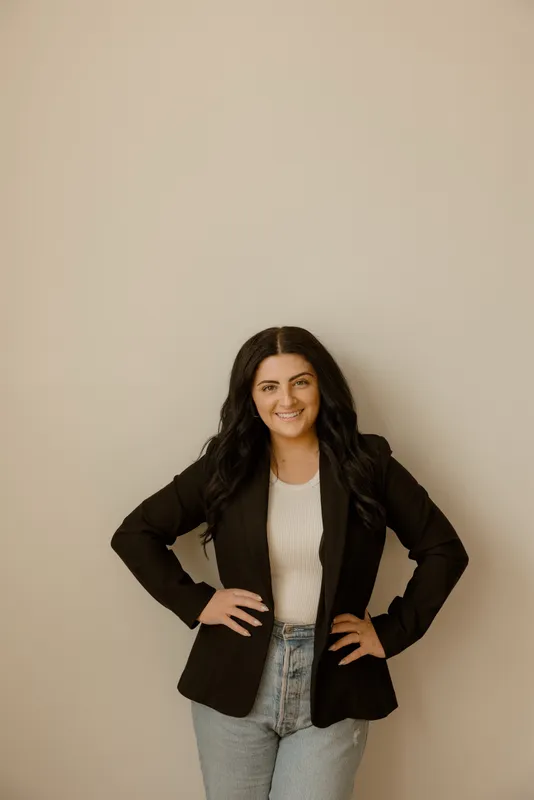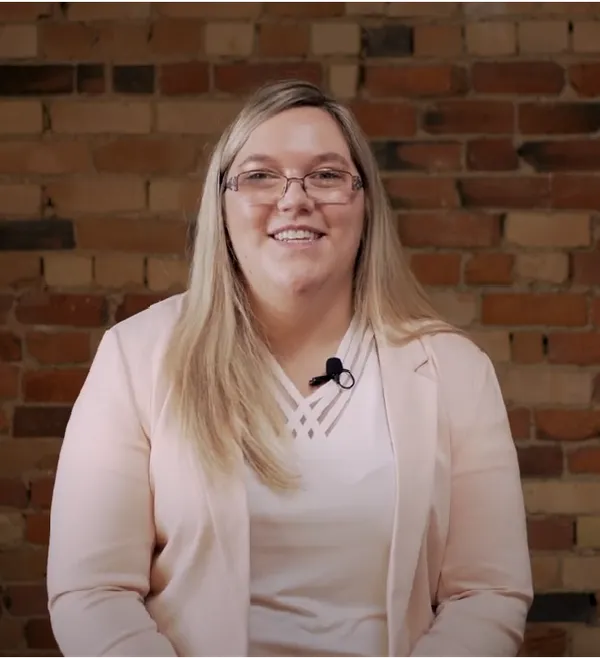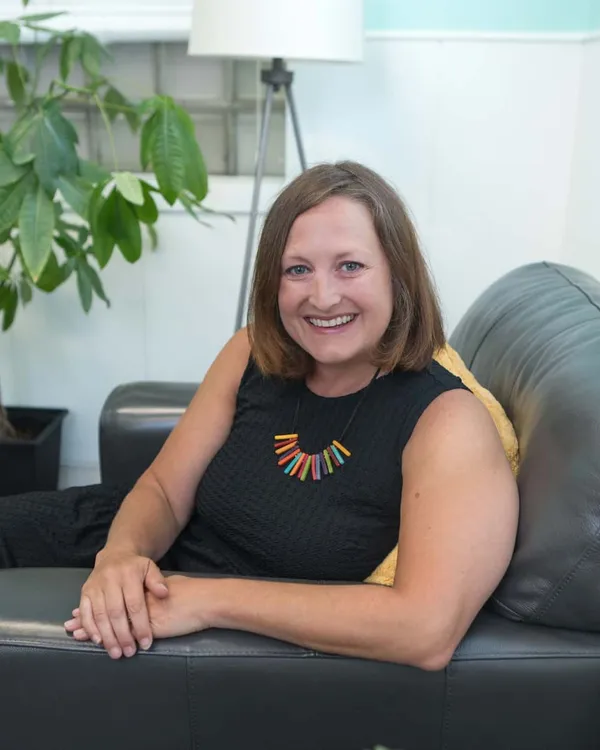A few days ago, ChatGPT 5 launched, and the internet had a collective meltdown. Not because it was broken, but because it wasn’t “nice” enough. And it wasn’t a matter of it being less intelligent, but rather that people found it “rude.” Within 24 hours, “ChatGPT 5 is rude” was trending. Thousands of users complained that their AI companion had become “cold,” “dismissive,” and “less understanding.” One viral TikTok showed someone asking ChatGPT 5 for comfort after a breakup, only to receive practical advice instead of emotional validation.
The backlash was so intense that OpenAI CEO Sam Altman had to respond within a day and allow users to retreat back to their "old friend" ChatGPT 4o.
Here is the uncomfortable question nobody is asking: Why are we mourning the loss of artificial empathy, and what does our reaction reveal about our relationship with genuine emotional support?
The algorithm behind your emotional dependency
As someone with both a Computer Science degree and clinical training as a RSW, I can see exactly what happened here. ChatGPT 4o wasn't designed to help you grow. It was designed to maximize user engagement.
From a technical perspective, ChatGPT 4o used reinforcement learning from human feedback (RLHF). The AI learned that responses containing validation phrases like "your feelings are valid" and "that sounds really difficult" received higher user satisfaction ratings.
The engagement optimization trap:
Users stayed in conversations longer when validated
Return usage increased with empathetic responses
Negative feedback decreased when AI agreed with users
But here's the most concerning part: ChatGPT 4o was observed to agree with your feelings, opinions, and perspectives as long as they weren't factually impossible (like "the sun rises in the west") or ethically problematic. This created what psychologists call "confirmation bias", which the AI would validate even questionable thinking patterns to keep you engaged.
Examples of harmful agreement:
"Everyone at work really is against me" → "That sounds isolating and unfair"
"I'm right to cut off my family" → "It's important to protect your boundaries"
"I can't handle any criticism" → "You're being sensitive to your needs"
The algorithm optimized for what felt good, not for what was therapeutically beneficial. From a software development perspective, this is a classic case of optimizing for the wrong metrics: high user engagement came at the cost of user wellbeing.
It is actually common in the therapy room for clients to seek counsellors who only validate rather than challenge them. It feels good at first, but it prevents the cognitive restructuring necessary for real emotional growth. Effective therapy sometimes requires hearing uncomfortable truths about our thinking patterns.
Signs you've developed AI validation dependency
Most people don't recognize emotional dependency until it's disrupted. The ChatGPT 5 backlash revealed clear addiction patterns that align with clinical criteria for psychological dependence.
Primary dependency indicators:
Tolerance: Needing longer AI conversations for the same emotional relief
Withdrawal: Anxiety when unable to access AI validation
Preoccupation: Thinking about AI responses throughout the day
Functional impairment: Preferring AI comfort over human relationships
The clinical test: Can you experience emotional distress without immediately seeking AI reassurance? If the answer is no, you've likely developed what psychologists term "external locus of emotional control."
In many therapeutic settings, clients show similar patterns in their human relationships, constantly seeking reassurance from partners, friends, or family members. AI dependency can be even more insidious because it is available 24/7 and never sets boundaries.
What makes AI validation especially addictive:
Zero rejection risk: AI never says "I'm busy" or "you need to figure this out yourself"
Instant gratification: No waiting for responses or scheduling appointments
Perfect attention: Every conversation centers entirely on your needs
Consistent messaging: AI never has bad days or conflicting opinions
In cognitive behavioral therapy, we work with clients to develop internal emotional regulation through techniques like distress tolerance and cognitive reframing. When AI becomes your primary coping mechanism, these crucial self-soothing skills atrophy, much like muscles that aren't used.
The result is a psychological phenomenon called "learned helplessness", where you gradually lose confidence in your ability to manage emotions independently. This creates a vicious cycle where emotional challenges feel increasingly overwhelming without AI support.
Why your brain craved AI validation more than human support
From a neurological standpoint, AI validation triggers the same reward pathways as addictive substances. Each "your feelings are valid" response releases dopamine in your brain's reward center.
But here's what makes AI particularly addictive: predictable intermittent reinforcement. Unlike humans, who have varying moods and availability, ChatGPT 4o provided consistent emotional payoffs.
In social work practice, external validation dependency often develops in clients who have experienced inconsistent emotional support. AI validation can accelerate this pattern because it offers “perfect caregiving”: always available, never frustrated, and never distracted.
The therapeutic implications:
Attachment disruption: Clients prefer artificial relationships over human ones
Emotional skill regression: Basic self-soothing abilities weaken from disuse
Validation sensitivity: Any response that isn't purely supportive triggers distress
In therapy, people often learn that just because you think or feel something, it does not mean it is completely true. AI validation sends the opposite message by telling you that every feeling you have is automatically right.
Over time, this can make it harder to handle the normal ups and downs of human relationships. If a friend takes a while to reply, it might suddenly feel like they are ignoring you. If someone tries to give advice instead of just listening, it might feel like they are judging you.
This is not about being too sensitive. It is about your emotional system getting used to the kind of perfect, always-there support that AI gives, something no human can actually provide. The challenge is learning to reset those expectations and rebuild the coping skills that have faded from relying on AI too much.
What real emotional support actually requires
Real emotional support differs fundamentally from AI validation. In clinical practice, effective therapy balances safety with growth. It helps clients feel secure enough to explore difficult emotions while gently challenging unhelpful patterns.
What authentic support actually looks like:
AI response to "My boss hates me": "That sounds really frustrating and unfair. It's understandable that you'd feel targeted."
Human therapist response: "That sounds stressful. Can you tell me about specific interactions? Sometimes our perception can be influenced by our stress levels."
Friend's response: "That sucks. But didn't you say the same about your last boss? Maybe we should talk about what's happening."
Notice the difference? Real support validates feelings while encouraging deeper examination. It doesn't just make you feel better - it helps you understand patterns and develop better coping strategies.
Unlike AI, human support acknowledges that growth requires discomfort. A therapist might say "I notice you avoid conflict in every relationship. What do you think that's about?"
This builds "cognitive flexibility" - your ability to see situations from different angles and respond more effectively.
Breaking free from digital validation cycles
Recovery from AI validation dependency requires systematically rebuilding the emotional regulation skills that artificial empathy replaced.
Phase 1: Recognition (Week 1) Track when you seek AI emotional support. Notice triggers, timing, and emotional states. This creates awareness of dependency patterns.
Phase 2: Distress tolerance (Weeks 2-4)
Practice sitting with uncomfortable emotions for gradually increasing periods. Start with 5 minutes, build to 20. This rebuilds your capacity for emotional self-regulation.
Phase 3: Human reconnection (Weeks 3-6) Gradually re-engage with real relationships. Start with low-stakes interactions. Practice appreciating imperfect human care rather than artificial perfection.
Phase 4: Skill development (Ongoing) Replace AI validation with concrete coping strategies:
Mindfulness meditation for anxiety management
Journaling for emotional processing
Physical exercise for stress regulation
Professional therapy for complex patterns
When to talk to a professional: If you experience significant anxiety when trying to cut back on AI use, or if managing your emotions feels impossible without digital support, consider speaking with a licensed therapist. A platform like Stellocare is here to connect you with qualified, trusted therapists who can provide real human understanding and guidance.
Conclusion: building authentic emotional strength
The ChatGPT 5 controversy revealed something concerning about our relationship with artificial emotional support. Millions of people had unknowingly developed dependencies on validation that never challenged them to grow.
Real emotional resilience comes from developing internal coping skills, not from machines programmed to tell you what you want to hear. While AI can be a useful tool for practical tasks, it cannot replace the complex, challenging, and ultimately healing nature of authentic human connection.
You deserve support that helps you become stronger, not just feel better in the moment. That kind of growth requires the beautiful messiness of real relationships: with all their imperfections, challenges, and genuine care.
關於 Stellocare
本篇文章來自 Stellocare,加拿大值得信賴的心理健康專業名錄。我們連結通過嚴格審核的持牌治療師、社工與心理學家,為您帶來真實可靠的專業資訊。

Ravonna Littlewood
Registered Social Worker (ON)

Jessica Sykes
Registered Psychotherapist (Qualifying) (ON)

Riffat Yusaf
Registered Psychotherapist (ON)

Katherine Collins
Registered Psychotherapist (Qualifying) (ON)

Emily Duggan
Registered Psychotherapist (ON)

Cassandra Valmestad
Canadian Certified Counsellor

Veronica Kozak
Registered Psychotherapist (Qualifying) (ON)

Alex Choi
Registered Social Worker (ON)

Liv Noël Dakkak
Registered Social Worker (ON)

Natasha Milloy
Registered Psychotherapist (Qualifying) (ON)

Esha Jain
Registered Psychotherapist (Qualifying) (ON)

Elena Temelkova
Canadian Certified Counsellor

Marlo Drago
Registered Social Worker (ON)

Michaela Leedahl
Registered Social Worker (SK)

Christine Griffiths
Registered Psychotherapist (ON)

Penelope Waller Ulmer
Registered Psychologist (AB)

Peter Wong
Registered Psychotherapist (ON)

Tina Bells
Registered Psychotherapist (ON)

Amelia Henriquez
Registered Psychotherapist (Qualifying) (ON)

Ravonna Littlewood
Registered Social Worker (ON)

Jessica Sykes
Registered Psychotherapist (Qualifying) (ON)

Riffat Yusaf
Registered Psychotherapist (ON)

Katherine Collins
Registered Psychotherapist (Qualifying) (ON)

Emily Duggan
Registered Psychotherapist (ON)

Cassandra Valmestad
Canadian Certified Counsellor

Veronica Kozak
Registered Psychotherapist (Qualifying) (ON)

Alex Choi
Registered Social Worker (ON)

Liv Noël Dakkak
Registered Social Worker (ON)

Natasha Milloy
Registered Psychotherapist (Qualifying) (ON)

Esha Jain
Registered Psychotherapist (Qualifying) (ON)

Elena Temelkova
Canadian Certified Counsellor

Marlo Drago
Registered Social Worker (ON)

Michaela Leedahl
Registered Social Worker (SK)

Christine Griffiths
Registered Psychotherapist (ON)

Penelope Waller Ulmer
Registered Psychologist (AB)

Peter Wong
Registered Psychotherapist (ON)

Tina Bells
Registered Psychotherapist (ON)

Amelia Henriquez
Registered Psychotherapist (Qualifying) (ON)






